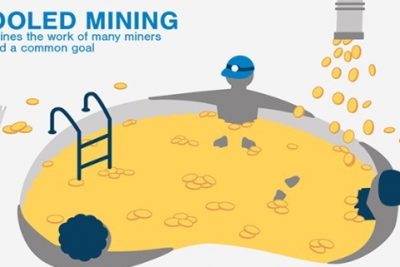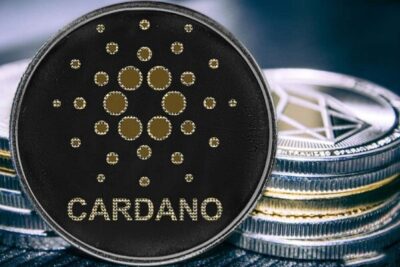

Mining Pools The Profitable Way To Alter Mining Process With Low Cost
21 April 2022
To begin mining cryptocurrency, one must first decide whether to go solo or join a “pool.” Mining pools have a number of benefits and drawbacks. The following information is crucial.
Joining a cryptocurrency mining pool is similar to joining a lottery syndicate — the benefits and drawbacks are the same. Assuming sole responsibility for a prize reduces your chances of winning. While a Bitcoin mining pool has a much higher chance of solving a block and earning a reward, the reward is shared among all pool members.
So joining a mining pool generates a steady income, even if the individual payments are small compared to the total block reward (which currently stands at 6.25 BTC). It’s important to remember that a Bitcoin mining pool’s hashing power should not exceed 51% of the networks. A single organization controlling more than 50% of the computational power in a cryptocurrency network could theoretically cause havoc on the entire network.
Let’s dive into pools of information on what is mining pools together with bePAY:
- What Is A Mining Pool
- How Does A Mining Pools Work?
- How To Join A Mining Pool
- Do mining pools make money?
- Top Best Mining Pools
- The Benefits And Drawbacks Of Mining Pools
- FAQs About Mining Pools
- Wrapping Up
What Is A Mining Pool?
Due to the limitations of solo mining, the mining industry developed a way of pooling the hash power of individual miners in order to increase the possibility of discovering new blocks. This is referred to as a cryptocurrency mining pool. Consider it as a coordinated network of individual miners who have decided to pool their processing resources in order to achieve production levels comparable to or exceeding those of huge farms.
Because the rewards earned by these pools are split among their members, each miner earns less. Given the improbability of solitary miners mining even a single block, obtaining a lesser but far more constant payout does not seem to be a deal-breaker. Pool mining is more viable and enticing due to the frequency of rewards.
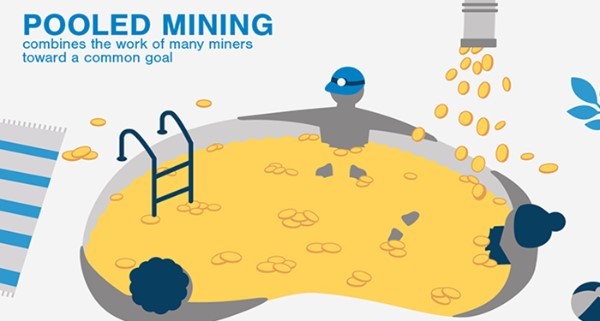
Mining Pools Explanation
How Does A Mining Pool Work?
Individual pool members contribute processing power to the task of identifying a block. If the pool is successful in these endeavours, it is rewarded, often with the linked cryptocurrency.
Typically, rewards are distributed evenly among those who contributed, based on the percentage of each individual’s processing capacity or labour to the group as a whole. Individual miners may be required to provide Proof of Work in order to obtain their rewards in certain situations.
Anyone interested in profiting from cryptocurrency mining has the option of going solo with their own specialized equipment or joining a cryptocurrency mining pool, which combines the hashing power of numerous miners and their devices. For instance, connecting six mining devices capable of 335 megahashes per second (MH/s) each may provide a combined 2 Gigahashes of mining power, resulting in quicker hash function execution.
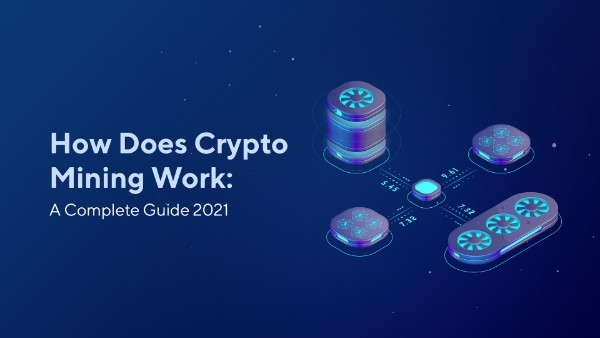
Mining Pools Working Mechanism
How To Join A Mining Pool?
Joining a pool is a necessary step for the majority of miners. Although some miners prefer to mine alone rather than in a pool, the pooled hash rate often results in more consistent block solving, which results in more frequent mining incentive distributions.
While joining a mining pool may seem to be a complicated, technical, and frightening procedure, it is really pretty easy. A pool that provides excellent customer service will assist a novice miner throughout the process.
The following are the fundamental procedures for joining a Bitcoin mining pool:
- Select the pool which you want to join.
- Incorporate the pool’s stratum addresses into your mining program.
- Connect a wallet to the pool that will receive rewards.
- Configure your computers to join the pool of your choice.
- The pool’s staff will supply you with all the information necessary to join.
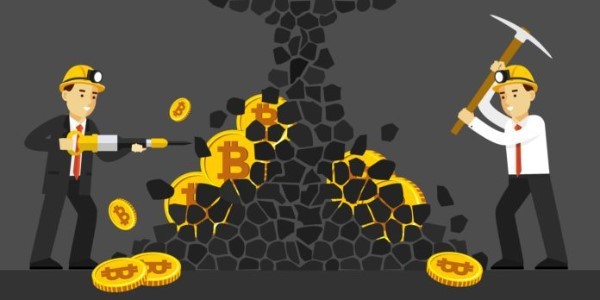
How To Join A Mining Pool?
Changing mining pools
Contrary to common belief, moving mining pools is a simple process. Simply update the pool address in your mining program with the new address and follow the instructions outlined above for joining the first pool. The pool’s support staff is available to assist you with any queries you may have throughout the joining and configuring processes.
>> Read Also: How To Mine Bitcoin At Home – Clarifying Of Mining Bitcoin Questions
Do Mining Pools Make Money?
If you choose to mine only on the blockchain network, you will control 100% of the block rewards. However, as previously said, you must consider the cost of energy and other mining-related expenses. Otherwise, mining pools provide you with a higher chance of obtaining Mining pool profitability while maintaining a cheap cost.
Each miner gets compensation based on their total contribution to fining and validating blocks of transactions in a pay-per-share pool. The benefit is that they compensate each member regardless of whether or not the pool earned a block reward.
You are compensated proportionately in proportional mining pools depending on your contribution to the aggregate hash rate. If the pool wins a reward, you are compensated depending on the number of shares you own.
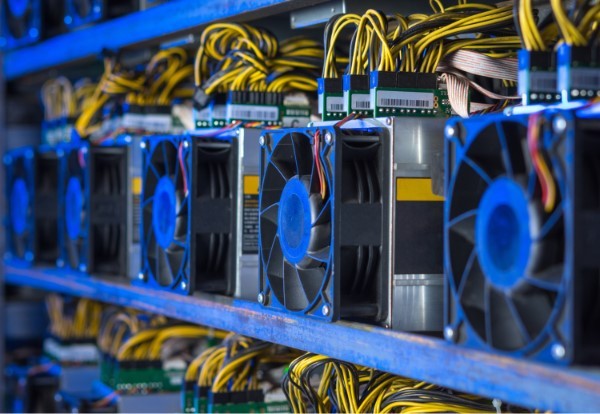
Mining Pool Profitability
It’s worth noting that bigger mining pools, by virtue of their hash rate, have a higher probability of obtaining the block reward. To summarize, you should do your own study and choose a pool depending on your overall expenditures and financial objectives.
The Benefits And Drawbacks Of Mining Pools
Mining Pools’ Benefits
Although success in individual mining entitles the winner to total ownership of the prize, the chances of success are very low due to the high power and resource needs. Individuals seldom earn from mining.
As the popularity of several cryptocurrencies has grown, the difficulty of mining them has risen as well. and the expenditures of pricey technology required to be a competitive miner, as well as power, sometimes exceed the potential Mining pool profitability.
Mining pools demand less hardware and power from each individual member, which increases the likelihood of Mining pool profitability. Whereas an individual miner may have a little probability of successfully locating a block and earning a mining reward, collaborating with others significantly increases the likelihood of success.
Mining Pools’ Drawbacks
By joining a mining pool, users cede some control over the mining process. Typically, they are constrained by terms established by the pool, which may regulate how the mining operation is conducted. Additionally, they are compelled to distribute any possible benefits, which means that one person engaging in a pool receives a smaller amount of Mining pool profitability.
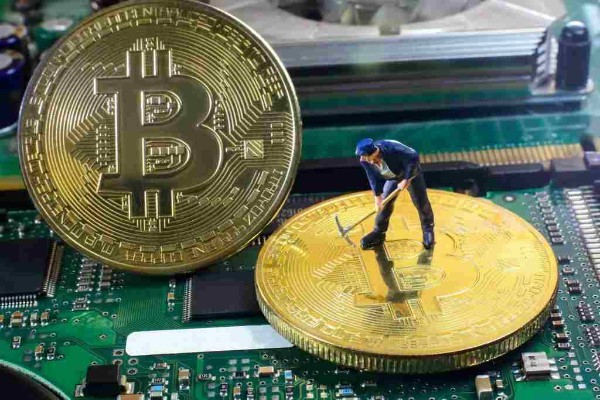
Mining Pools Pros and Cons
According to blockchain.com, a few mining pools like AntPool, Poolin, and F2Pool control the majority of the Bitcoin mining process. Although many pools strive to be decentralized, these organizations aggregate a large portion of the power necessary to administer the Bitcoin system.
According to some cryptocurrency advocates, the existence of a few large mining pools contradicts the decentralized structure present in Bitcoin and other cryptocurrencies.
Top Best Mining Pools
Essentially, it’s a group of miners that pool their computational resources. Mining pools are designed to make block creation “easier” for cryptocurrency miners. Each member receives a share of the prize depending on the amount of power they provide.
Because it’s so tough to find a new block on our own, many people join a mining pool. Because of the pools, the work does not need as much processing power as it could otherwise. It’s quite hard to mine for a reward on our own. Because of this, users band together in order to obtain prizes by pooling their resources.
The winner is selected by a betting-like mechanism in which the first group to respond wins. Because of this, it is critical to make use of the combined computing power of the whole block; it is not a question of how much you mine but rather how often you win bets.
Anyone may join a cryptocurrency mining pool, which is open to everyone. To begin mining, we just need to create an account and begin the procedure. The commissions, on the other hand, are a bit trickier to figure out. All of these swimming pools need some kind of upkeep. The expense of this is distributed among the members of the pool, as you may have guessed. Later, we’ll have a look at how commissions work.
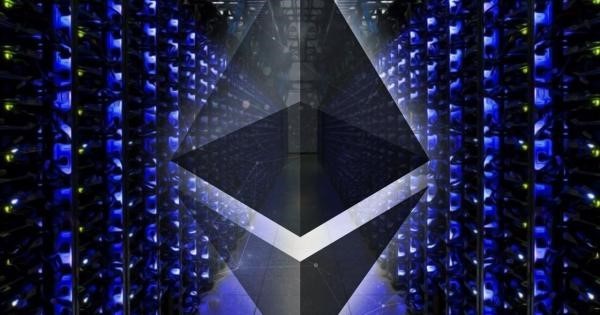
Mining pool Ethereum
Now Let’s explore which is the best pool for mining?
Top Best Mining Pool Ethereum
In this case we will take the mining pool Ethereum as an example of the top best mining pool
Ethermine
It is now the most powerful mining pool in terms of total hash power. Since it’s so popular, there are several servers running it. It uses a payment distribution method similar to PPLNS. The least amount that may be withdrawn is 0.1 ether, and we are charged a 1% fee.
F2pool
It has been in operation since April 2013, making it one of the major Ethereum mining pools. Second-most significant Ethereum mining pool, with more than 200 TH/s in total power across all mining nodes, as of this writing. It is possible to use F2Pool’s two payment distribution methods, one of which has a 3% withdrawal fee and the other of which has an 8% withdrawal fee. To make a withdrawal, you’ll need a minimum of 0.1 ether.
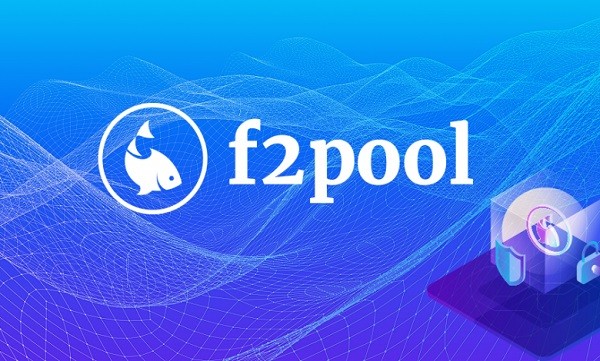
F2pool
Hiveon
In the third place, there is the Hiveon Pool Platform, which makes it easy to mine. Monitoring of all mining activities is possible thanks to an easy-to-use setup framework. It is now the third-largest Ethereum mining pool in existence. There are no commissions charged by Hiveon Pool, which uses a PPS+ payment distribution method. To make a withdrawal, you’ll need a minimum of 0.1 ether.
Poolin
It’s one of the most well-respected pools in recent memory. In addition, it enables you to predict your daily earnings based on the amount of electricity we provide. For Ethereum and other cryptocurrencies, it also shows how often new blocks are created, the network’s difficulty level, and the reward for each block. 1% fee is charged for the PPS+ payment distribution system. To withdraw funds, you must have a balance of at least 0.2 ether.
2Miners
Bitcoin and NANO may be cashed out via a somewhat unusual pool. Normally, the prize is paid out in Ethereum, but this pool allows us to get it in whatever other currency we like. The epoch and the size of the DAG in Ethereum are indicated by this number. In exchange for its services, a 1% service fee is levied, similar to PPLNS. A least of 0.0005 Ether is needed for the withdrawal.
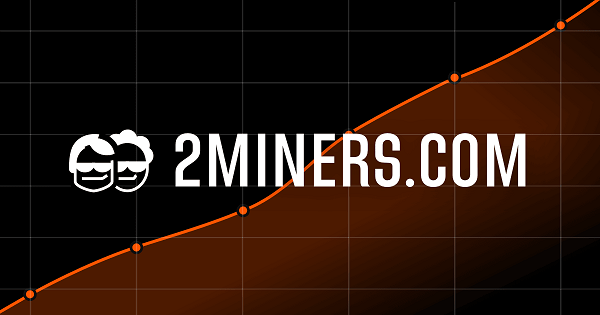
2Miners
Binance
Mining Pool Binance is a full-service platform focused on increasing miners’ earnings. Binance Pool is a cryptocurrency mining pool that focuses on PoW and PoS mining.
Mining Pool Binance, as a critical component of the Binance ecosystem, leverages Binance’s strengths in technology, financing, the exchange business, industry resources, and other areas to provide customers with not only the ideal mining experience but also a one-stop-shop for “mining-trading” services.
FAQs About Mining Pools
Which Is The Best Pool For Mining?
The size of a mining pool is determined by the amount of hash rate it contributes to a specific network. The greater the hash rate, the greater the size of the hash. Because larger pools are more reliable, stable, and cost less, this is an important consideration.
Your mining pool’s fees will have a greater impact on your profits as a smaller miner than on a larger miner, so it’s important to keep track of them. Better if there are fewer fees involved. A high withdrawal threshold may make it difficult for smaller miners to withdraw their earnings because of the lower rewards they receive and the longer time it takes to accumulate them.
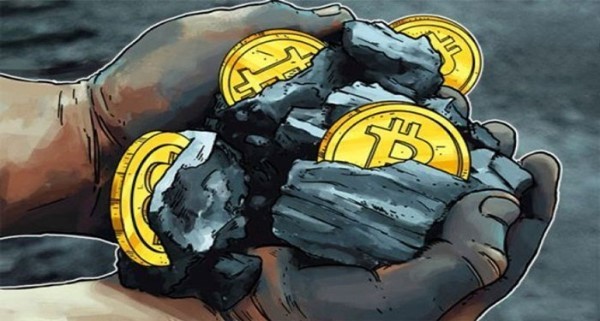
Which Is The Best Pool For Mining?
Small miners want to get their rewards quickly so that they can reinvest and increase their hashrates.
Miners contribute their computing power to a mining pool’s servers, which are located somewhere in the world. To maximize your mining potential and speed, connecting to a server that is closest to you is often recommended.
The location of the server is critical not only for small miners but for anyone looking to make the most of their limited resources in order to earn the most money.
Is Anyone Eligible to Join a Mining Pool?
Anyone who has the necessary equipment and a willingness to mine cryptocurrencies is eligible to join a mining pool.
How Do I Become a Member of My Mining Pool?
Choose your pool depending on your specifications and populate your program with the stratum address. Then establish a connection to your wallet, set up your client, and begin mining.
Can I Mine Bitcoin Without Becoming a Member of a Pool?
You certainly can join a pool, on the other hand, is a far more lucrative method to mine Bitcoin, particularly given that its difficulty grows with each coin received. To remain competitive, it’s best to join a pool unless you have the money to construct your own or purchase many ASIC miners.
Wrapping Up
The fundamental role of the mining pool software is to submit mining hardware work to the Bitcoin network, to receive completed work from other network miners, and to relay data back to the blockchain. Additionally, it is used to connect Bitcoin miners to the blockchain and, if you are a member of a cryptocurrency mining pool, to your mining pool.
With the creation of the first mining pool, the cryptocurrency mining environment was irrevocably altered. They may be quite advantageous for miners seeking a more constant payment. With so many options available, they’re sure to discover one that meets their requirements.
Bitcoin mining would be far more decentralized in an ideal world. However, for the time being, it is what we would refer to as “sufficiently decentralized.” In any event, nobody profits in the long term from anyone pool having the bulk of the hash rate. Participants would very certainly prohibit it — after all, Bitcoin is not run by miners but by users.

What Is Staking Crypto? – Complete Tutorial For Newbies
30 March 2022